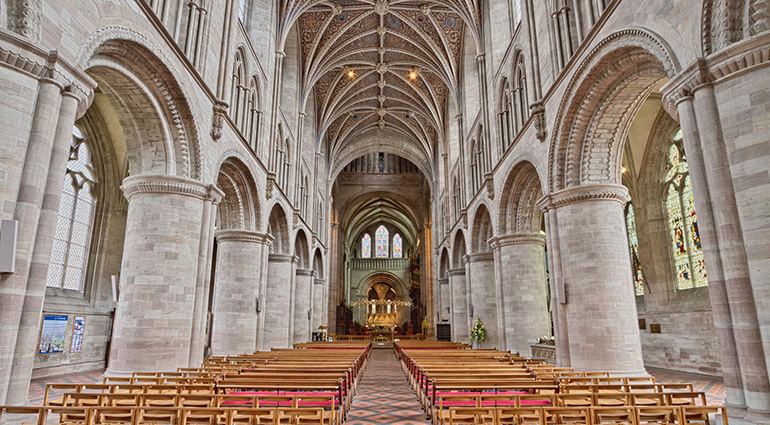Reason to Sing
Sing to the
When I was thirteen, my school required students to take four exploratory courses, including home economics, art, choir, and woodworking. On my first day in choir, the instructor called each student to the piano individually to hear their voices and place them in the room according to their vocal range. During my turn at the piano, I sang the notes she played multiple times, but wasn’t directed to a section in the room. Instead, after repeated tries, she sent me to the counseling office to find a different class to take. From that moment on, I felt I shouldn’t sing at all, that my voice shouldn’t be heard in song.
I carried that thought with me for more than a decade until I read Psalm 98 as a young adult. The writer opens with an invitation to “sing to the
The psalmist points out two wonderful reasons to joyfully praise God in song and in attitude: His saving work in our lives and His ongoing faithfulness toward us. In God’s choir, we each have a place to sing of the marvelous things He has done.
INSIGHT
Hallel is the Hebrew word for “praise” and aptly describes many of the psalms, including Psalm 98. Within the Hebrew psalter, however, there is a subset of hymns called the Hallel Psalms (Psalms 113–118). These psalms were normally sung or recited during high feast times, including Passover—Psalms 113–114 before the meal and Psalms 115–118 after it. The Jewish day begins at dusk, so when Jesus shared a final Passover with His men, crucifixion day had already begun. In the context of the cross, the impact of singing Psalm 118:24 takes on new meaning: “This is the day which the
Why not take a moment to joyfully praise the Lord for all He has done?











